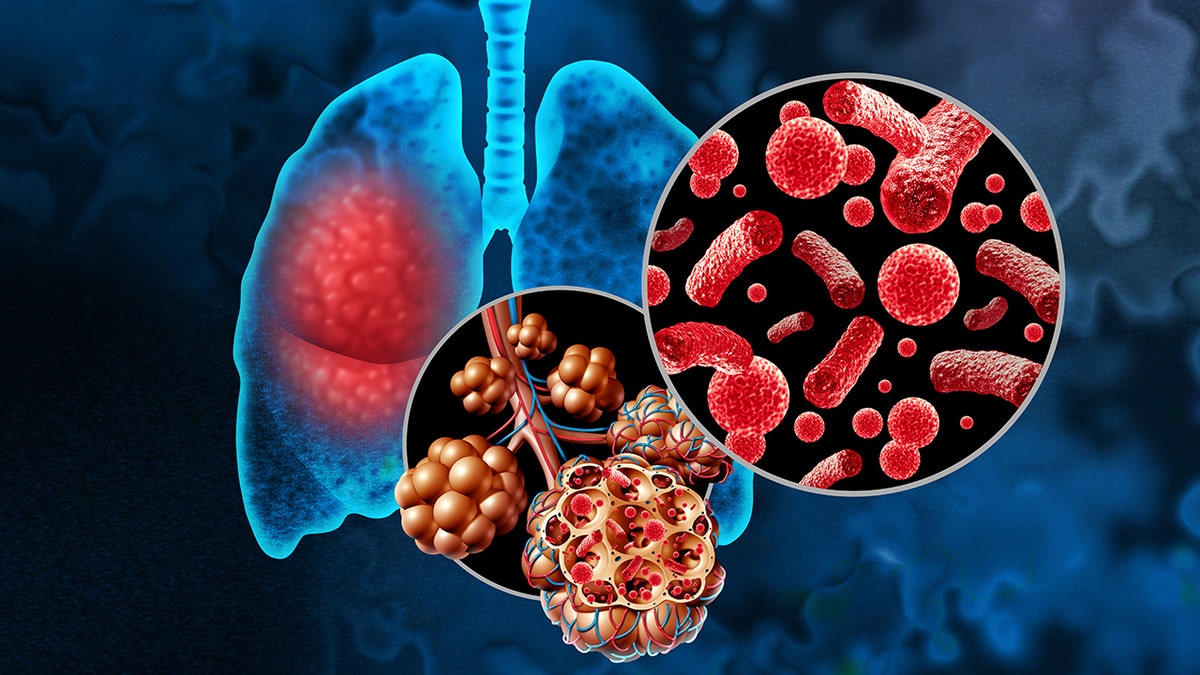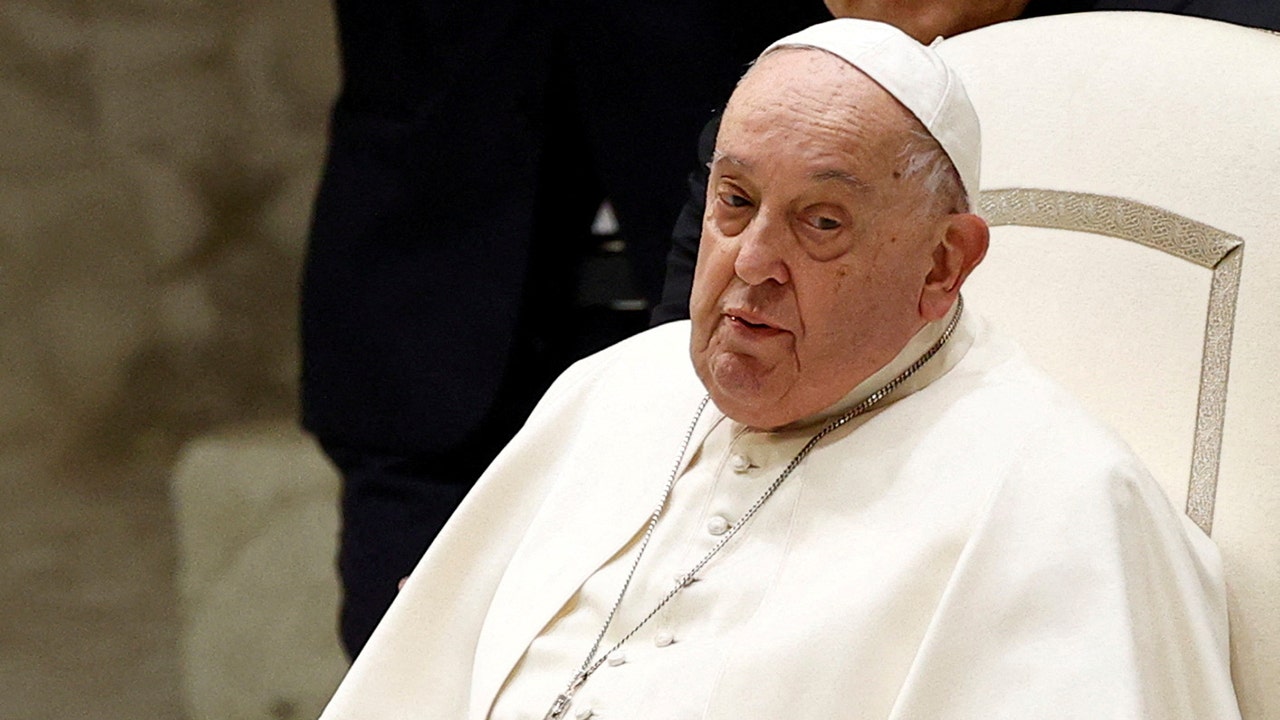Following Pope Francis’ diagnosis of bilateral pneumonia, doctors are speaking about the condition.
The Vatican announced the Catholic leader’s diagnosis — which was reportedly confirmed via laboratory tests and chest X-rays — in a statement on Tuesday.
“The polymicrobial infection, which arose on a picture of bronchiectasis and asmatiform bronchitis, and which required the use of antibiotic cortisone therapy, makes the therapeutic treatment more complex,” the statement said.
POPE FRANCIS DIAGNOSED WITH BILATERAL PNEUMONIA, VATICAN SAYS
“The chest CT scan that the Holy Father underwent this afternoon … demonstrated the onset of bilateral pneumonia that required further pharmacological therapy.”
Pope Francis leads a Mass in St. Peter’s Square on Feb. 9, 2025 in Vatican City. (Alessandra Benedetti – Corbis/Corbis via Getty Images)
Pope Francis, 88, was recently hospitalized to treat bronchitis, a condition that can lead to pneumonia.
What is bilateral pneumonia?
Pneumonia is defined by Cleveland Clinic as an infection in the lungs caused by bacteria, viruses or fungi.
This can cause the lung tissue to swell and create a buildup of fluid or pus in the lungs.
SURGE IN WALKING PNEUMONIA AFFECTS THESE HIGH-RISK GROUPS, SAYS DR. MARC SIEGEL
Bilaterial pneumonia, also known as double pneumonia, occurs in both lungs at the same time.
Dr. Marc Siegel, clinical professor of medicine at NYU Langone Health and Fox News senior medical analyst, said the risk of bilateral pneumonia depends on the underlying health conditions of the patient and the strength of their immune system.

Pneumonia is defined as an infection in the lungs caused by bacteria, viruses or fungi. (iStock)
“It also depends on the bacteria — is it a resistant, aggressive form like pseudomonas, or strep or pneumococcus?” he told Fox News Digital.
“The biggest concern is that it could spread into the bloodstream and cause sepsis, which is definitely life-threatening.”
“There are many causes — but in this case, I would suspect strep or pneumococcus,” Siegel said. “[The pope] is not a smoker or immunocompromised, so I doubt it is staph aureus or gram-negative bacteria.”
Bacterial vs. viral pneumonia
Most cases of community-acquired pneumonia are bacterial or viral.
Bacterial pneumonia is normally more severe than viral pneumonia, according to Cleveland Clinic.
CLICK HERE TO SIGN UP FOR OUR HEALTH NEWSLETTER
It can be caused by an infection of Streptococcus pneumoniae bacteria, also called pneumococcal disease. Other bacteria that can cause the respiratory condition include mycoplasma pneumoniae, Haemophilus influenza, Chlamydia pneumoniae and Legionella (Legionnaires’ disease), per the above source.

Most cases of community-acquired pneumonia are bacterial or viral. (iStock)
Bacterial pneumonia is treated with antibiotics.
Viral pneumonia can sometimes stem from viruses that include the flu, common cold, COVID-19 and respiratory syncytial virus (RSV), according to Cleveland Clinic.
For more Health articles, visit www.foxnews.com/health
This type of pneumonia typically improves on its own.
In less common cases, some fungi (molds) or protozoa can cause pneumonia.

Pope Francis holds his homily during the weekly General Audience at the Paul VI Hall on Feb. 12, 2025, in Vatican City. (REUTERS/Ciro De Luca/File Photo)
“The biggest concern is that it could spread into the bloodstream and cause sepsis, which is definitely life-threatening,” Siegel cautioned.
CLICK HERE TO GET THE FOX NEWS APP
The condition is also more dangerous for the elderly, the doctor added.
“[The pope] is also missing part of his lung due to prior pneumonia, and the scarring can cause recurrence and make healing more difficult,” he said.





